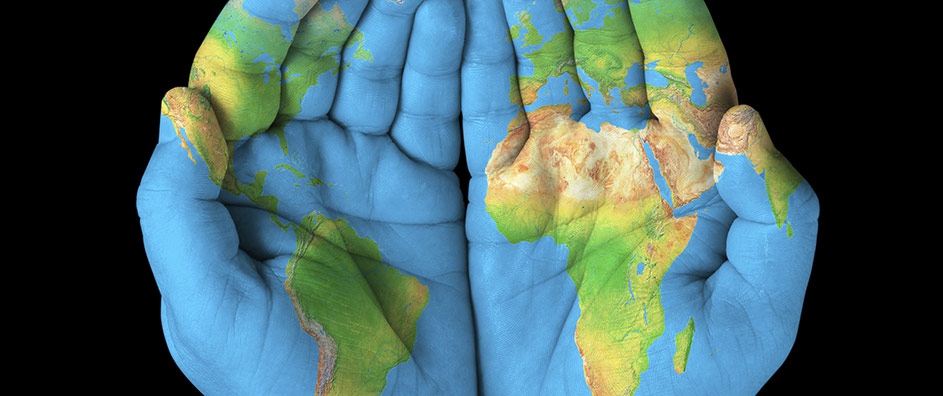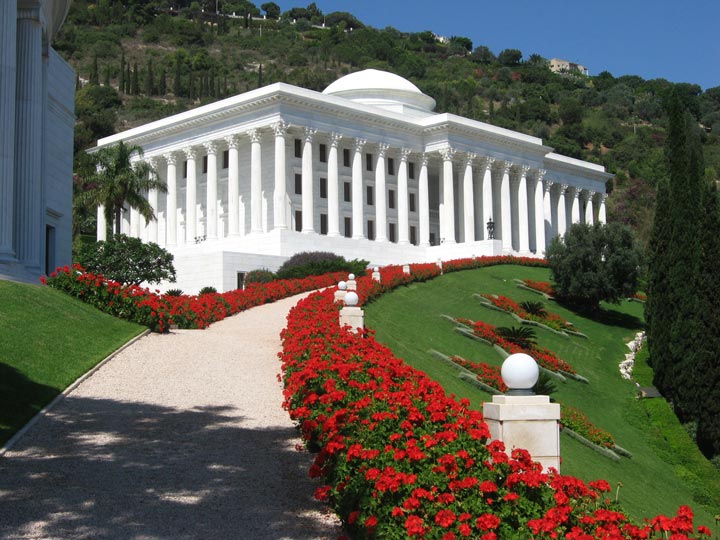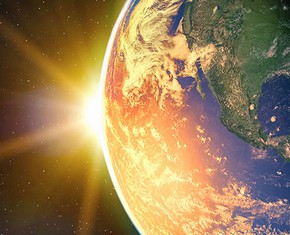The views expressed in our content reflect individual perspectives and do not represent the authoritative views of the Baha'i Faith.
Baha’is believe that sooner or later world peace is inevitable.
We can either unite voluntarily and establish peaceable relations between all peoples and nations; or we can wage enormously destructive and devastating wars, and by doing so be led, exhausted and depleted and defeated, toward a forced and enforced unification by absolute necessity.
Peace will come to humanity, Baha’u’llah wrote, when humanity finally decides we have had enough war:
These fruitless strifes, these ruinous wars shall pass away, and the ’Most Great Peace’ shall come. Yet do we see your kings and rulers lavishing their treasures more freely on means for the destruction of the human race than on that which would conduce to the happiness of mankind. … These strifes and this bloodshed and discord must cease, and all men be as one kindred and one family. … Let not a man glory in this, that he loves his country; let him rather glory in this, that he loves his kind. …” – Baha’u’llah and the New Era, p. 39.
With this lengthy and historically sustained focus on world peace, the Baha’is around the world have reached several conclusions and milestones in their peacemaking quest. Much of that accumulated wisdom was delivered to the world’s leaders in 1985, when the Universal House of Justice, the democratically-elected governing body of the worldwide Baha’i Community, released a statement called The Promise of World Peace. It began this way, with a literal promise:
The Great Peace towards which people of goodwill throughout the centuries have inclined their hearts, of which seers and poets for countless generations have expressed their vision, and for which from age to age the sacred scriptures of mankind have constantly held the promise, is now at long last within the reach of the nations. For the first time in history it is possible for everyone to view the entire planet, with all its myriad diversified peoples, in one perspective. World peace is not only possible but inevitable. It is the next stage in the evolution of this planet — in the words of one great thinker, “the planetization of mankind.” – The Universal House of Justice, Messages 1963 to 1986, p. 680.
Quoting theologian and philosopher Pierre Teilhard de Chardin, from his book The Future of Man, the Universal House of Justice pointed out one of the central Baha’i ideas and ideals – that humanity, like each individual human being, undergoes a gradual process of maturation. In other words, we evolve, as a species, from one stage of spiritual development to another – and the time has come in humanity’s evolutionary path to achieve world unity and universal peace.
One major conceptual barrier stands in our way, the Universal House of Justice wrote:
…a paralyzing contradiction has developed in human affairs. On the one hand, people of all nations proclaim not only their readiness but their longing for peace and harmony, for an end to the harrowing apprehensions tormenting their daily lives. On the other, uncritical assent is given to the proposition that human beings are incorrigibly selfish and aggressive and thus incapable of erecting a social system at once progressive and peaceful, dynamic and harmonious, a system giving free play to individual creativity and initiative but based on co-operation and reciprocity.
As the need for peace becomes more urgent, this fundamental contradiction, which hinders its realization, demands a reassessment of the assumptions upon which the commonly held view of mankind’s historical predicament is based. Dispassionately examined, the evidence reveals that such conduct, far from expressing man’s true self, represents a distortion of the human spirit. Satisfaction on this point will enable all people to set in motion constructive social forces which, because they are consistent with human nature, will encourage harmony and co-operation instead of war and conflict.
Today, almost thirty years after this message was written, scientists and researchers have begun to agree with that conclusion. Baha’is believe in the inherent, inborn nobility of the true human self – that we do not have to face an eternal future of violence, warfare and death; but that we can look forward to real and lasting peace.

















Comments
Sign in or create an account
Continue with Googleor